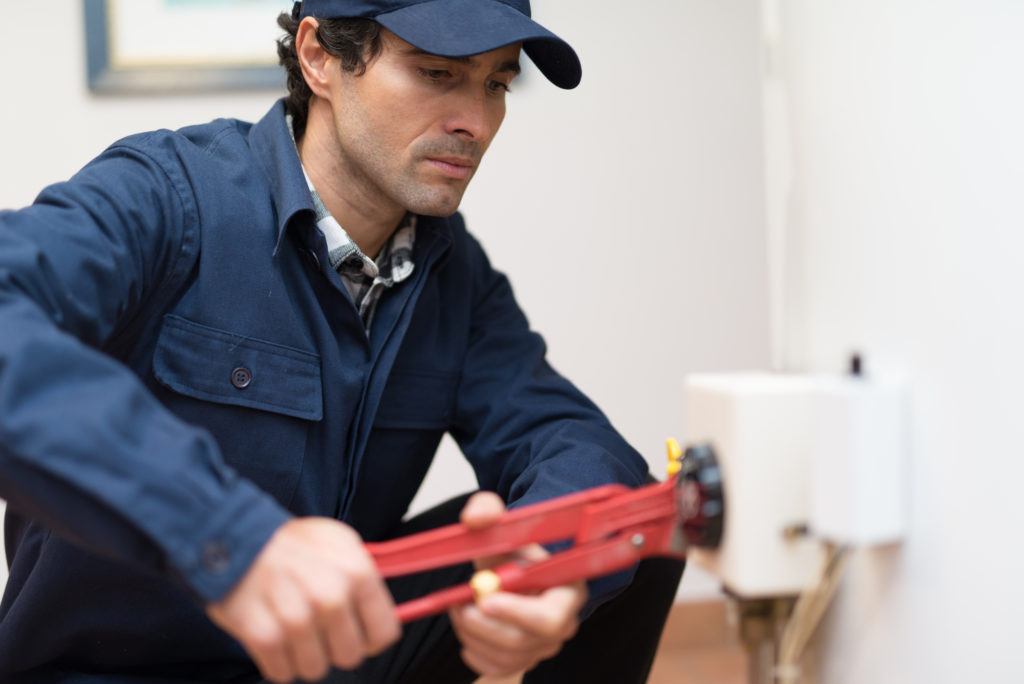An Introduction To Fixing Everyday Water Heater Problems
An Introduction To Fixing Everyday Water Heater Problems
Blog Article
We've unearthed this post pertaining to Water Heaters Problems down the page on the internet and figured it made good sense to write about it with you on my blog.

Think of starting your day without your routine warm shower. That already sets a poor tone for the remainder of your day.
Every residence requires a reliable hot water heater, but only a few understand exactly how to take care of one. One easy way to keep your water heater in top shape is to check for faults frequently and fix them as soon as they appear.
Keep in mind to shut off your hot water heater before sniffing about for mistakes. These are the hot water heater mistakes you are probably to experience.
Water too warm or as well cool
Every hot water heater has a thermostat that identifies how warm the water gets. If the water entering into your home is as well hot despite establishing a convenient optimum temperature level, your thermostat may be damaged.
On the other hand, too cold water may be due to a stopped working thermostat, a damaged circuit, or improper gas flow. For example, if you use a gas hot water heater with a busted pilot burner, you would get cold water, even if the thermostat remains in best condition. For electrical heating systems, a blown fuse might be the perpetrator.
Insufficient hot water
Hot water heater come in several dimensions, depending on your warm water demands. If you run out of warm water prior to everyone has actually had a bath, your water heater is also small for your family size. You need to think about mounting a larger water heater container or selecting a tankless hot water heater, which takes up less space and is much more long lasting.
Odd sounds
There go to the very least 5 type of noises you can speak with a hot water heater, yet one of the most typical interpretation is that it's time for the water heater to retire.
To start with, you should be familiar with the normal appears a hot water heater makes. An electric heater might seem different from a gas-powered one.
Popping or banging sounds generally indicate there is a slab of debris in your storage tanks, and it's time to cleanse it out. On the other hand, whistling or hissing sounds might simply be your shutoffs letting some pressure off.
Water leakages
Leaks could originate from pipelines, water connections, valves, or in the worst-case circumstance, the storage tank itself. In time, water will wear away the storage tank, and also locate its way out. If this happens, you need to change your hot water heater asap.
Nonetheless, before your modification your entire tank, make certain that all pipelines remain in place and that each shutoff works flawlessly. If you still require help identifying a leak, call your plumber.
Rust-colored water
Rust-colored water implies one of your hot water heater parts is worn away. Maybe the anode pole, or the container itself. Your plumber will be able to recognize which it is.
Lukewarm water
Despite exactly how high you established the thermostat, you won't get any type of hot water out of a heater well past its prime. A hot water heater's efficiency might decrease with time.
You will certainly likewise obtain warm water if your pipes have a cross connection. This implies that when you turn on a tap, hot water from the heating unit streams in together with routine, cold water. A cross link is simple to place. If your warm water taps still pursue closing the hot water heater valves, you have a cross connection.
Discoloured Water
Rust is a major cause of dirty or discoloured water. Deterioration within the water container or a stopping working anode rod might trigger this discolouration. The anode pole protects the container from rusting on the inside as well as should be inspected annual. Without a rod or a properly working anode pole, the hot water promptly corrodes inside the storage tank. Call a professional hot water heater specialist to identify if replacing the anode pole will take care of the trouble; if not, change your water heater.
Conclusion
Preferably, your water heater can last 10 years before you require a change. Nonetheless, after the 10-year mark, you might experience any of these mistakes a lot more on a regular basis. Now, you should add a new hot water heater to your budget.
How To Troubleshoot 3 Common Water Heater Problems in Twin Cities
The Water Heater Is Leaking
A leaky cold water inlet valve A loose pipe fitting A leaky temperature and pressure relief valve A corroded anode rod A cracked tank Turn Off Your Water Heater:
Shut off your gas water heater by turning the gas valve on the unit to the “OFF” position. Shut off your electric water by switching its power off at your electrical panel. Look for a two-pole breaker labeled “water heater” and turn it to the “OFF” position. Move the ball valve connected to the water heater to be perpendicular to the piping at a 90° angle. Look for the Leak:
Depending on whether the water is coming from the tank's top or bottom, you’ll want to look for the leak in different locations.
If the leak comes from the top of the tank, carefully look for water escaping from the cold water inlet valve or loose pipe fittings. Rusted hot and cold water valves can have loose connections with the tank, with water leaking out of them.
https://mspplumbingheatingair.com/blog/how-to-troubleshoot-3-common-water-heater-problems
I ran across that review on Common Problems with Tank Water Heaters when doing a lookup on the web. Liked our write-up? Please share it. Help someone else discover it. We recognize the value of reading our article about Common Problems with Tank Water Heaters.
View More Report this page